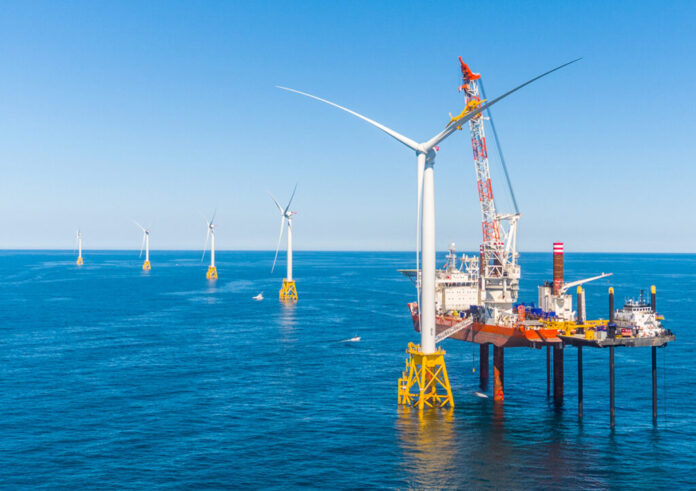
PROVIDENCE – The 12-year saga of efforts to build a utility-scale offshore wind project off the coast of Rhode Island has been extended again, with no clear end-date in sight.
International developer Orsted A/S, which has a national hub in Providence, has pulled back on its previously estimated 2023 completion date for the Revolution Wind project slated for federal waters off the coast of Rhode Island. In an October earnings call, Orsted President and CEO Henrik Poulson said it was “highly likely” that the 50-turbine project, along with several others currently under federal review, will be delayed beyond anticipated construction years. Poulson cited uncertainty in the permitting process, which involves comprehensive review by the U.S. Department of Interior’s Bureau of Ocean Energy Management, as reason for the expected delay.
BOEM recently pushed back its approval timeline for Vineyard Wind, an 84-turbine project slated for the coast of Martha’s Vineyard. Industry leaders have largely viewed the timeline and outcome of Vineyard Wind, slated to be the first large-scale wind farm to come online, as a direct indicator of when and if other offshore wind projects will move forward.
Exactly what this means for a new timeline for Revolution Wind is unclear. With BOEM’s decision to delay its environmental impact statement on Vineyard Wind until December, pushing off a final ruling until January, Orsted cannot “re-baseline our construction schedules,” Poulson said on the call.
The latest delay continues what has been a more than 10-year effort to get Rhode Island’s offshore wind energy off the ground. While the state still lays claim to the title of the only offshore wind farm, off the coast of Block Island, the five-turbine project pales in comparison to the size and energy generation of utility-scale projects, at least 16 of which have signed federal leases for waters up and down the Atlantic, according to BOEM.
In 2008, former Gov. Donald L. Carcieri first chose Deepwater Wind to develop the state’s offshore wind farm. But plans for the original proposal, slated to be a 100-turbine array generating 385 megawatts of power, have been slow-progressing and undergone significant changes, including when Orsted U.S. Offshore acquired Deepwater Wind in 2018. While Deepwater was awarded leasing rights for the federal waters in 2013, the application for Revolution Wind was not submitted to BOEM until earlier this year.
The project is a major piece of the Gov. Gina M. Raimondo’s ambitious renewable energy goals, including generating 1,000 megawatts of power by 2020 and reaching 100% renewable energy by 2030. The 400 megawatts expected from Revolution Wind is already included in the state’s estimated 933 megawatts as of the third quarter of 2020, based on approved agreements between the developer and National Grid Rhode Island.
In an emailed statement, R.I. Energy Commissioner Nicholas Ucci said that regardless of individual project delays, the state is still “actively developing pathways toward meeting 100% of our electricity demand with renewables by the end of the decade.” Ucci cited as evidence the state’s recently announced plans commission another offshore wind project, with plans to put out a request for proposals to develop 600-megawatt offshore wind farm.
A BOEM spokesperson in an email said the recent delays in Vineyard Wind were the result of the 13,000 comments the agency received during a recent public input period. However, some industry leaders and politicians have also faulted the Trump administration, and its lack of interest in offshore wind, as reason for delays, and speculated that the incoming Biden administration will “ease the bottleneck,” The Boston Globe reported.
Orsted declined to provide further comment, including on how the change in presidential administration will impact its timeline. BOEM also did not respond to inquiries for comment on this subject.
Nancy Lavin is a PBN staff writer. You may reach her at Lavin@PBN.com.












